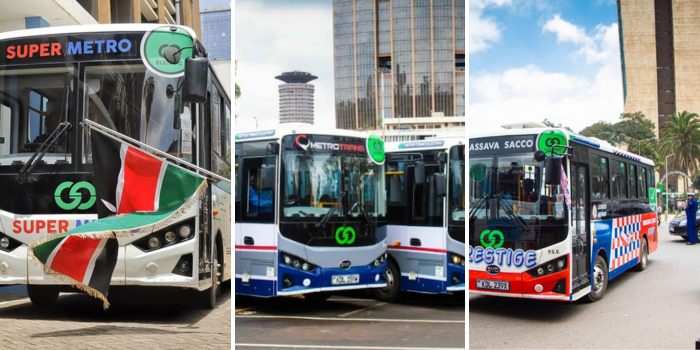Over 41 per cent of the population in Nairobi, uses public transport for daily commuting as efforts around e-mobility in Kenya gain momentum .
For decades, buses and minivans operated by savings and credit cooperatives (SACCOs) have dominated Nairobi’s public transport sector.
Of concern, however, is the high rates of carbon emissions associated with the enormous public transport fleet connecting the city’s central business district to the satellite residential estates.
As is the case in other African cities, traffic jams are common in Nairobi.
However, recent developments in the automobile industry show prospects of a possible revolution to greener transport systems in the city.
A case in point is the jump in electric vehicle sales in Kenya as automakers seek to disrupt the market.
BasiGo promoting e-mobility in Kenya
BasiGo, an e-mobility startup in Kenya is among the leaders in the revolution through its commuter buses it assembles locally.
Also, the firm is turning Nairobi greener with one bus at a time -making e-mobility in Kenya a reality.
Several players in the public transport industry have incorporated electric buses into their fleets, courtesy of BasiGo.
Since 2022 when it entered Kenya’s market, the company has partnered with various public transport companies to supply them with electric buses.
Furthermore, as of May 2023, the firm had supplied its buses to six major transport companies which control a sizable share of the market.
According to Basigo, its fleet had as of May 2023 covered over 280,000 kilometres and cut off carbon emissions by 120 tonnes.
Moreover, the demand for electric rides in the city is evident from the commuters as well.
Basigo has a system that allows commuters to track the location of the electric rides which helps them in making travel arrangements.
Dealing With Lack of Charging Infrastructure
The growth of e-mobility has however faced impediments due to a lack of the requisite charging infrastructure.
To overcome this, Basigo has partnered with the government to install charging points in strategic locations in the city.
Consequently, on May 24, the company unveiled the first publicly accessible charging station to mark a milestone in the transition towards e-mobility in Nairobi.
According to Basigo, the charging station will have the capacity to charge six buses and rise to 23 vehicles by the end of 2023.
Speaking during the launch, BasiGo’s CEO Jit Bhattacharya said the company was looking to launch 16 more charging stations across Nairobi by December.
The introduction of lower power tariffs for e-mobility companies by the government, is a key incentive for the development of more charging stations.
“With the new e-mobility tariff, we can invest in infrastructure like this charging station and enable the rapid growth of the electric vehicle industry in Kenya,” the CEO noted.
In a subsequent statement, Kenya Power, the country’s official power supplier, reiterated its commitment to support green initiatives by BasiGo.
“Kenya Power will support Basigo Kenya in uprating the capacity of the transformer serving the new charging station to accommodate other private and public passenger vehicles towards the end of the year,” Kenya Power stated.
About BasiGo
BasiGo is an e-mobility start-up looking to revolutionize the public transportation sector.
It provides public transport bus owners with a cost-effective electric alternative to diesel.
With its headquarters in Nairobi, Kenya, the team has seasoned entrepreneurs dedicated to creating an inclusive sustainable mobility revolution in Africa.

